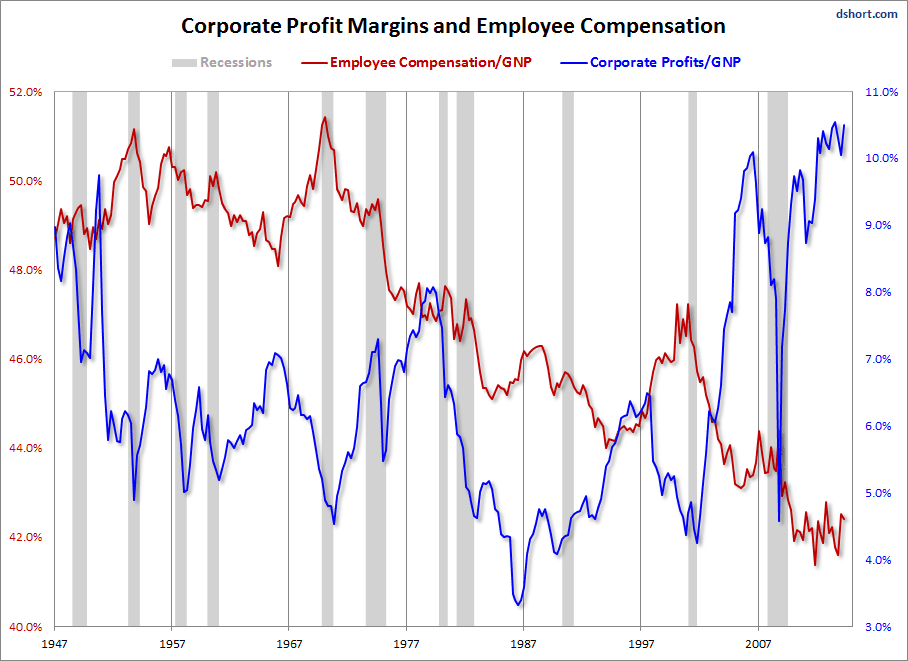Picture a good job. You are paid enough to support yourself and your family and save some for the future. You know when and how much you are working so you can plan the other life tasks that fill your day. Perhaps you have benefits that protect you from health risks, help you plan for retirement, and prevent you from income loss in the event of injury. Perhaps you like the people you work with. Your work gives you meaning.
In today’s economy, the prevalence of “good jobs” is diminishing. At the same time, many businesses are doing better than ever. Businesses can and should do more to create high-quality jobs and improve existing jobs. What’s more, businesses can benefit from doing so.
Recognizing that challenge, we welcomed a new initiative to the Aspen Institute Economic Opportunities Program last week: Good Companies/Good Jobs. With this initiative, we will specifically engage business leaders, encouraging and equipping them to adopt strategies that produce outstanding outcomes for both their businesses and their frontline workers.
American workers — particularly frontline workers operating in entry-level or near-entry-level positions who often make $40,000 or less annually — are struggling. A December Gallup poll showed that the American public ranked the economy, dissatisfaction with government, and jobs/unemployment as the top three issues for the sixth consecutive year.
Economic indicators reveal troubling trends behind their concerns. For half a century, the US has been shifting from an industrial to a service economy. This change means many jobs now offer low wages, part-time hours (often with shifting schedules), involuntarily part-time positions, fewer benefits, and significant levels of career dissatisfaction. Wages have stagnated or even slumped. An increasing share of our Gross National Product is going to corporate profits, and a decreasing share is going to employee compensation, at levels not seen in decades. More jobs of quality are needed, and jobs offering lower quality need upgrading.

Companies should use their immense resources to support frontline workers, who are interested in both stability and opportunities to advance in earnings and careers. Employers set conditions that shape these opportunities, which include pay, benefits, hours, training, quality of supervision, design of jobs and work environments, and more. Company leaders across industries can set conditions that simultaneously produce outstanding business outcomes and expand economic opportunities for frontline workers. And they stand to gain from increased productivity, decreased turnover, higher quality products and services, and more.
MIT Professor Zeynep Ton’s The Good Jobs Strategy demonstrates that even in the cutthroat, low-margin marketplace of retailers there are great examples of businesses offering much better job quality that are delivering superb customer service while boosting profitability and return to investors. Our own work at the Aspen Institute Economic Opportunities Program, as well as Good Companies/Good Jobs Director Mark Popovich’s previous work at The Hitachi Foundation, shows similar results spanning different sectors, including manufacturing, health care, retail, and other service-related industries. Many companies have already invested hundreds of billions of dollars in training and workforce development.
Companies can make money without attending to job quality, but that choice carries high social costs and growing reputational and business risks. Businesses that do not consider job quality are missing opportunities to strengthen communities and the local economies in which they operate. More directly their companies will suffer high turnover, dampened productivity, slumping quality, and eroded customer loyalty.
There is an opportunity for companies to “do good” and “do well.” Through this initiative, we will target business leaders that are most ready, willing, and able to effect change. Those leaders — particularly at small- and medium-sized firms that account for a large share of total jobs — need information about how good jobs strategies are designed and executed. Good Companies/Good Jobs will help them act by highlighting model companies. We also recognize the importance of incentives in helping companies, as well as their investors and lenders, measure success and identify opportunities for improving job quality as well as the bottom line. Good Companies/Good Jobs will work to incentivize companies to adopt strategies that consider job quality by providing tools to rigorously quantify, benchmark, and report key business and frontline worker outcomes.
America wants to work, it wants business to succeed, and it wants good jobs. These goals are not mutually exclusive. Business leaders can help drive the economic success of frontline workers, and tools and support will accelerate them to that end.
Share
Tweet America wants to work, it wants business to succeed, and it wants good jobs. These goals are not mutually exclusive.
Tweet As good jobs become rarer, many businesses are doing better than ever. Businesses should do more to create high-quality jobs, and they can benefit from doing so.
Tweet The Good Companies/Good Jobs initiative engages business leaders, encouraging and equipping them to adopt strategies that produce outstanding outcomes for both businesses and workers.
Tweet Businesses that do not consider job quality are missing opportunities to strengthen communities and the local economies in which they operate.
Keep in touch
Good Companies/Good Jobs encourages and equips business leaders to enact strategies that simultaneously produce outstanding outcomes for their businesses and their frontline workers. Good Companies/Good Jobs is an initiative of the Economic Opportunities Program.
Learn how the Economic Opportunities Program is helping low- and moderate-income Americans connect to and thrive in a changing economy. Follow us on social media and join our mailing list to stay up-to-date on publications, blog posts, and other announcements.

